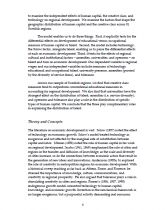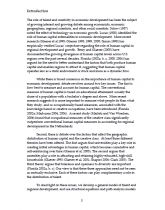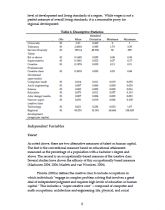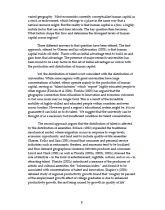Projekt: The Creative Class or Human Capital?
Skrýt detaily | Oblíbený- Kvalita:88,8 %
- Typ:Projekt
- Univerzita:Univerzita Tomáše Bati ve Zlíně
- Fakulta:Fakulta managementu a ekonomiky
- Kategorie:Ekonomika
- Podkategorie:Management
- Předmět:Management
- Autor:eliseus
- Rozsah A4:39 strán
- Zobrazeno:1 609 x
- Stažené:0 x
- Velikost:0,4 MB
- Formát a přípona:PDF dokument (.pdf)
- Jazyk:anglický
- ID projektu:2933
- Poslední úprava:27.03.2014
The role of talent and creativity in economic development has been a subject
of growing interest to social scientists. Human capital is observed both to be
an important contributor to growth and to be unevenly distributed
geographically.
While there is consensus on the importance of human capital to economic
development, debate takes shape around two central issues. First, there is the
question of how best to measure human capital. The conventional measure of
human capital is based on educational attainment (share of population with a
bachelors degree and above). But more recent research suggests that it is
more important to measure what people do than what they study, and thus
occupationally based measures, associated principally with creative class
occupations, have been introduced. Second, there is debate over the factors
that yield the geographic distribution of human capital in the first place.
Three alternative factors have been found to play a role: universities;
amenities (measured here as diversity of service industries); and openness
and tolerance.
of growing interest to social scientists. Human capital is observed both to be
an important contributor to growth and to be unevenly distributed
geographically.
While there is consensus on the importance of human capital to economic
development, debate takes shape around two central issues. First, there is the
question of how best to measure human capital. The conventional measure of
human capital is based on educational attainment (share of population with a
bachelors degree and above). But more recent research suggests that it is
more important to measure what people do than what they study, and thus
occupationally based measures, associated principally with creative class
occupations, have been introduced. Second, there is debate over the factors
that yield the geographic distribution of human capital in the first place.
Three alternative factors have been found to play a role: universities;
amenities (measured here as diversity of service industries); and openness
and tolerance.




